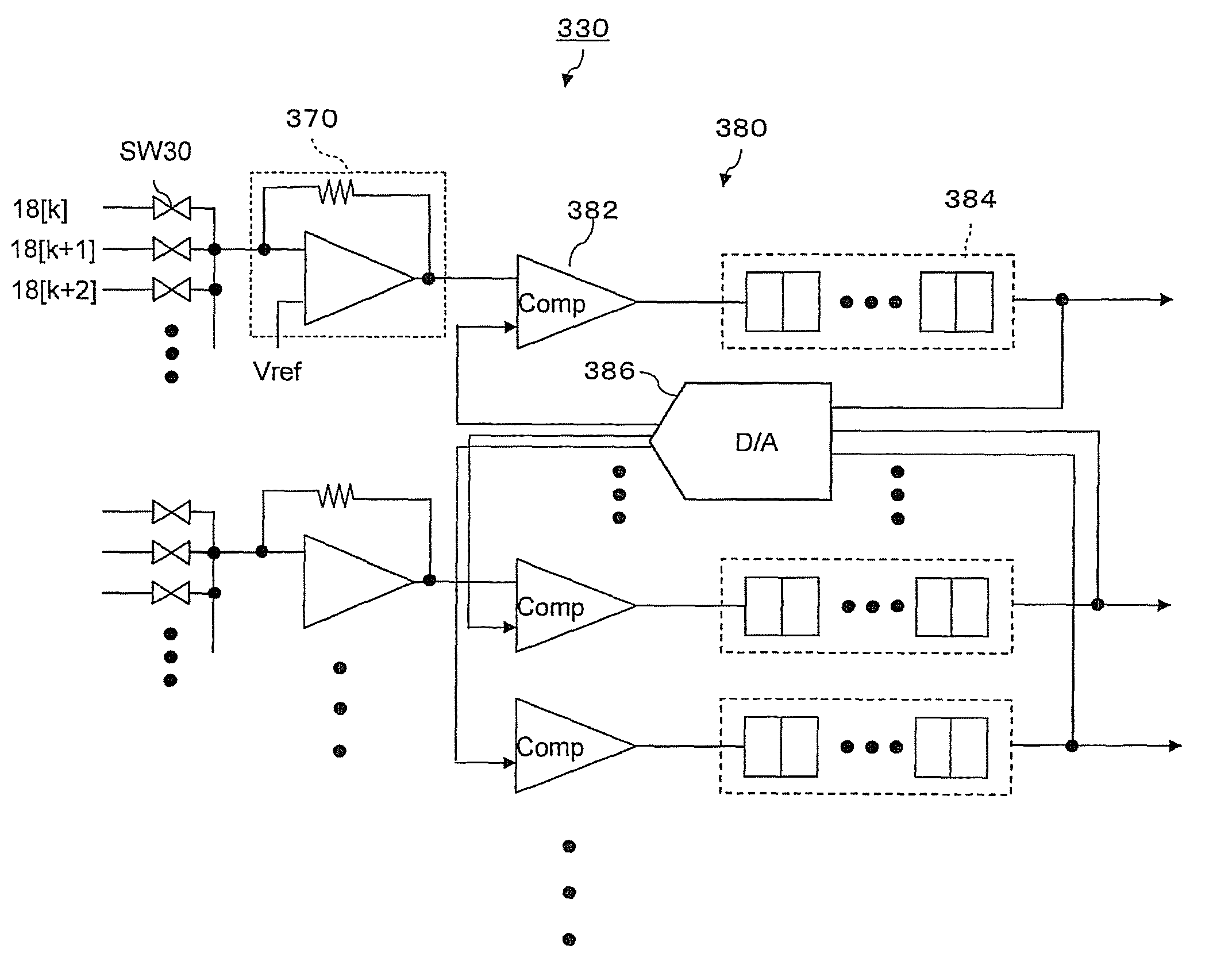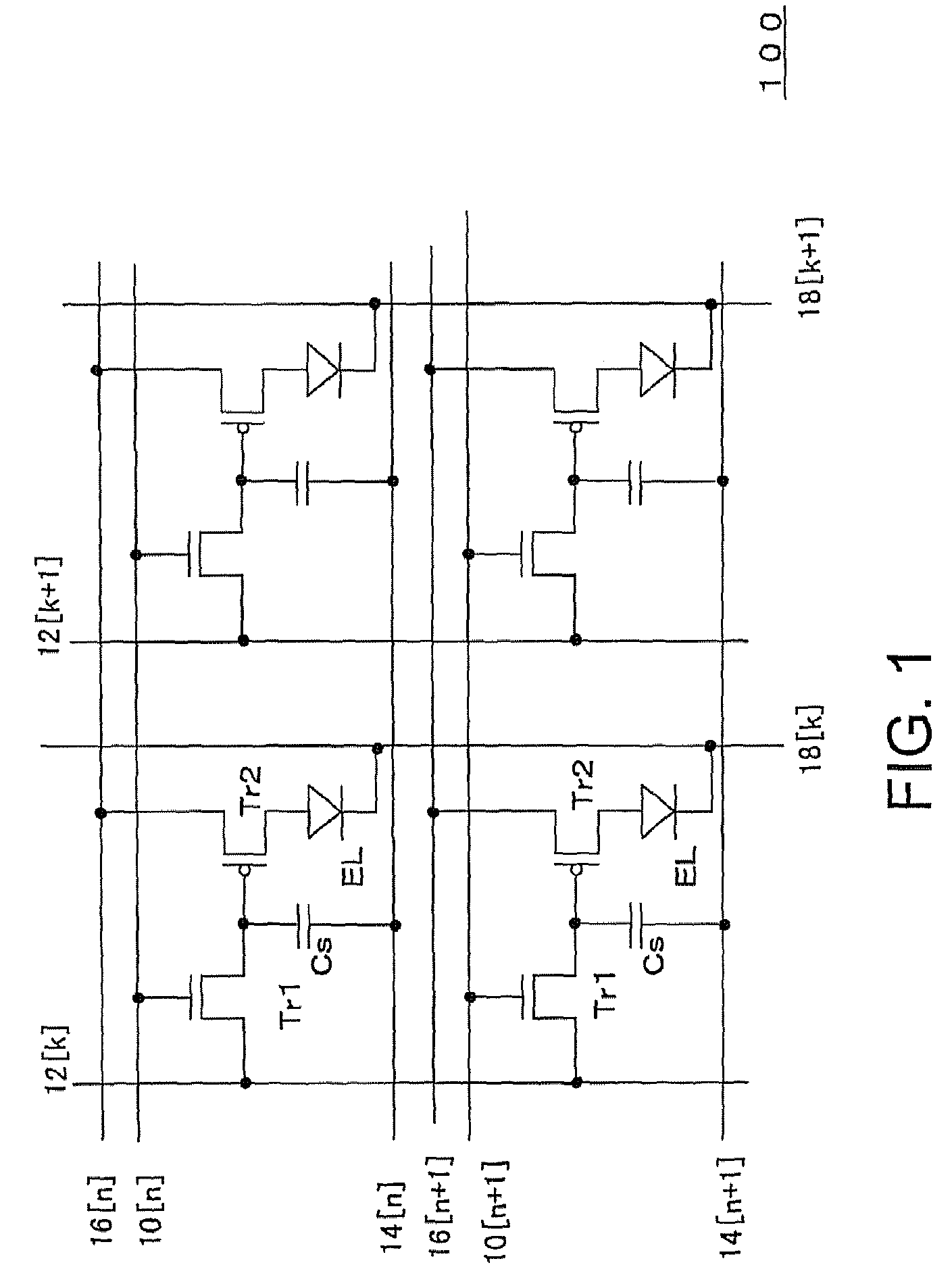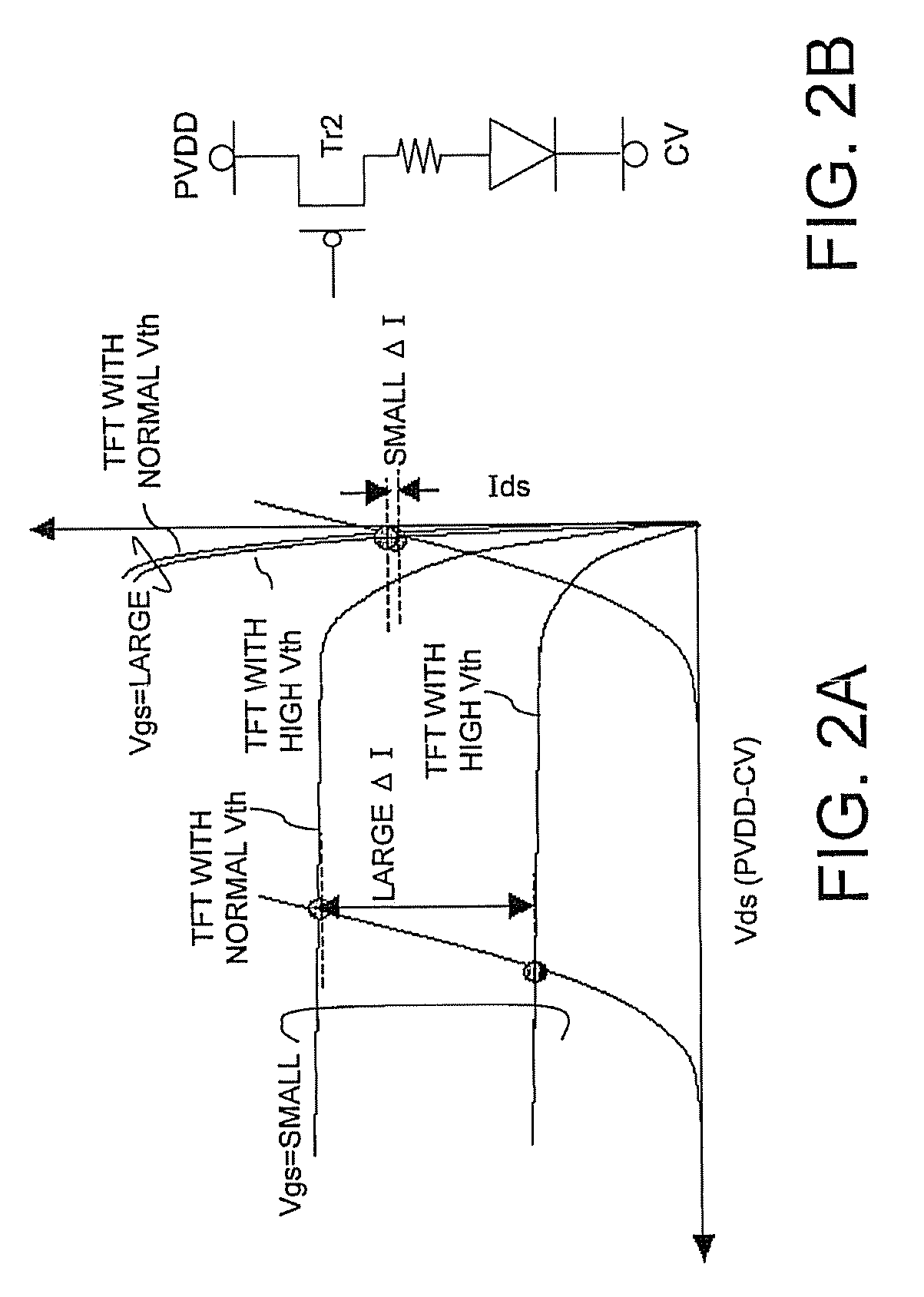Electroluminescence display apparatus
a display apparatus and electroluminescent technology, applied in static indicating devices, instruments, material analysis, etc., can solve the problems of unfavorable correction of display variations, unfavorable adjustment of display variations, and reduced yield, so as to speedily carry out measurement of display variations
- Summary
- Abstract
- Description
- Claims
- Application Information
AI Technical Summary
Benefits of technology
Problems solved by technology
Method used
Image
Examples
Embodiment Construction
[0033]A preferred embodiment of the present invention (hereinafter referred to as “embodiment”) will now be described with reference to the drawings.
[Detection Principle]
[0034]In the embodiment, a display apparatus is an active matrix organic electroluminescence (EL) display apparatus, and a display section having a plurality of pixels is formed on an EL panel 100. FIG. 1 is a diagram showing an example equivalent circuit structure of an active matrix EL display apparatus according to the embodiment. A plurality of pixels are arranged in the display section of the EL panel 100 in a matrix form. Formed along a horizontal (H) scan direction (row direction) of the matrix are a selection line (gate line GL) 10 on which a selection signal is sequentially output, and a power supply line 16 (VL) for supplying a drive power supply PVDD to an organic EL element 18 (hereinafter simply referred to as “EL element”) which is an element to be driven. A data line 12 (DL) on which a data signal (Vs...
PUM
 Login to View More
Login to View More Abstract
Description
Claims
Application Information
 Login to View More
Login to View More - R&D
- Intellectual Property
- Life Sciences
- Materials
- Tech Scout
- Unparalleled Data Quality
- Higher Quality Content
- 60% Fewer Hallucinations
Browse by: Latest US Patents, China's latest patents, Technical Efficacy Thesaurus, Application Domain, Technology Topic, Popular Technical Reports.
© 2025 PatSnap. All rights reserved.Legal|Privacy policy|Modern Slavery Act Transparency Statement|Sitemap|About US| Contact US: help@patsnap.com



